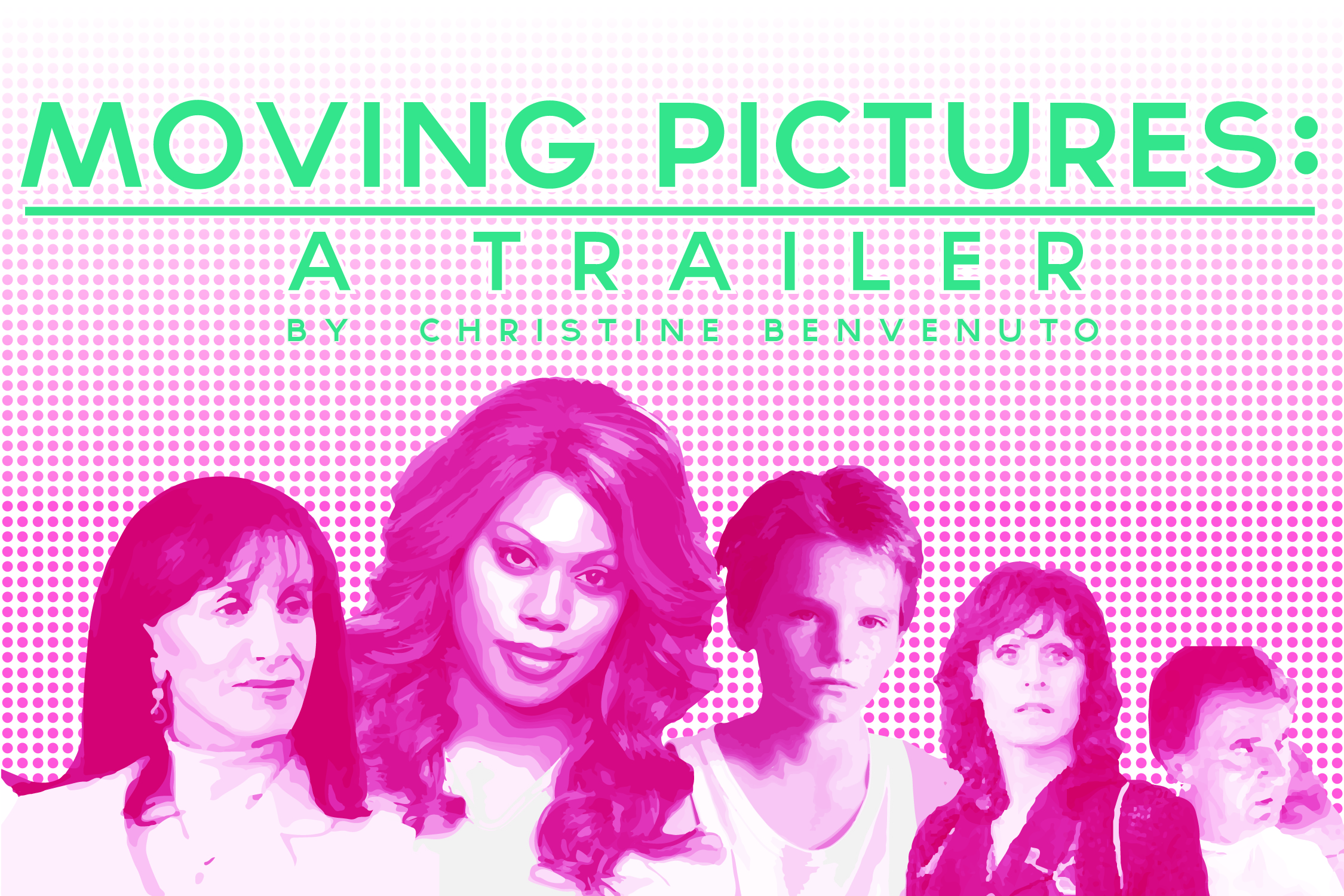Author Christine Benvenuto previews her upcoming longform piece about transgender portrayals in film and media.
Sometimes the best thing we can do to understand our own marginalization and privilege is to look to how culture defines it: What does it mean to be gay? What does it mean to be a feminist? What does it mean to be disabled? What does it mean to be heir to an estate? What does it mean to be undocumented?
What does it mean to be transgender?
The HBO series Looking, the shouts and murmurs about Jared Leto’s performance in Dallas Buyers Club, and dialogues about Beyoncé’s latest sampling of Chimamanda Ngozi Adichie have all attempted to provide answers to these questions.
When Christine Benvenuto asked herself, ‘What does it mean that I am the ex-wife of someone who has transitioned?’ she answered with a memoir. Sex Changes: A Memoir of Marriage, Gender, and Moving On (St. Martin’s Press) is an attempt to answer this question for herself within the blinking cursor of what existed in popular culture. Some identities are too complex for mainstream art to define.
Here, Benvenuto previews her longform piece “Moving Pictures,” which we will publish partially online next week and fully in print later this year. “Moving Pictures” allows her to be both the subject and the cultural critic when exploring her identity in film and mainstream media.
//
No one wants to be invisible. We want our experiences reflected back to us in the culture we consume. If we find ourselves in tough circumstances, if we count ourselves members of a group that is sidelined or under siege, it’s comforting to believe the world knows we’re here. That we aren’t alone. Right?
Wrong. Anyway, wrong for me.
When my husband announced that he was going to stop being my husband and my children’s father and start living as a woman, the last thing I wanted to do was watch movies about people undergoing gender transformation—or their families. I was living it. I didn’t need to play DVDs of it in my spare time. At first there was an element of denial involved, of not wanting to admit that I’d entered this terrain, or that a map, even of someone’s wrong directions, might be helpful in crossing it. Second, there was a desire to get back to seeing myself as me, at the center of my own story, and not just as an extra in a drama entirely of someone else’s making. Gender issues didn’t define me. And third, coming from several groups (working class, Italian-American, Jewish) whose screen portrayals are often cringe-worthy didn’t give me much hope that I’d encounter truths about my life in someone else’s images. The possibility of a PC gloss on the facts, or an unsympathetic caricature was all too real.
I also never thought I would write my own book about the way my life had been ripped out from under me. The first two reasons above were part of my reluctance. The last was part of overcoming it: Someone needed to share the truth about this experience, and eventually I realized that telling my story was a necessary step in reclaiming it.
I wrote a memoir and I made myself watch those DVDs. A few of them anyway—film and television portrayals of gender transition. My attention snagged on the way family members were presented—any family member, but wives most of all: How they were treated by the trans-character, and how they were treated by the script. I didn’t always appreciate the views, but it was fascinating to pick them apart and analyze the filmmakers’ agendas. In this genre, there’s always an agenda.
I began with Transamerica (2005), still the best-distributed commercial film about gender transition. I noticed the sometimes subtle ways the film made its laudatory case that the transgendered were just folks—not scary, not monsters; deserving of viewers’ sympathy. I also noticed the not-so-subtle caricature of the trans-character’s family, in particular the cartoonish version of femininity offered by her hideous mother. No progress there, and no sympathy either. It was this characterization that made me curious to know more about the fictional portrayals of trans-families that filmmakers were coming up with.
I found some PC glosses and more caricatures. But along with them was also what I least expected: a handful of real-life heartbreak, in which, yes, I caught those glimpses of my experience reflected. In the end, they were worth watching for.





